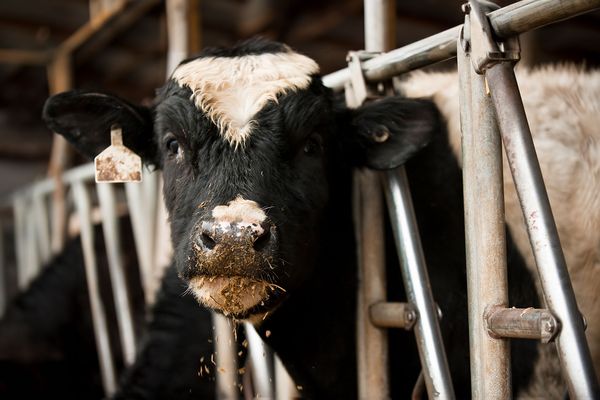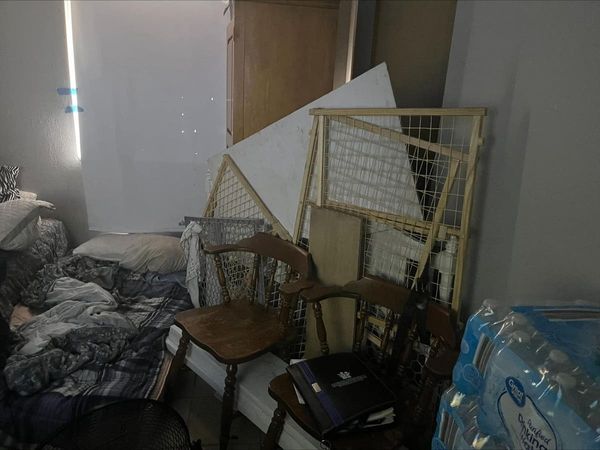A BBC news anchor who was accidentally captured giving the middle finger at the start of a programme has apologised for a “silly joke” meant for friends but not for a live broadcast.
On Wednesday, Maryam Moshiri, one of BBC News’s chief presenters, was seen at the start of the BBC News bulletin at noon with her middle finger – and eyebrows – raised, after the end of the programme’s recognisable countdown.
She quickly lowered her hand and blanked her expression before quickly beginning to read out headlines about Boris Johnson’s appearance at the Covid inquiry in a serious and composed manner.
She apologised on X on Thursday morning, saying that she had been joking around with the team, pretending to count down using her fingers.
“When we got to 1 I turned [my] finger around as a joke and did not realise that this would be caught on camera,” she wrote.
“It was a private joke with the team and I’m so sorry it went out on air! It was not my intention for this to happen and I’m sorry if I offended or upset anyone. I wasn’t ‘flipping the bird’ at viewers or even a person really. It was a silly joke that was meant for a small number of my mates,” she said, adding a “face palm” emoji.
Some people took offence, commenting below Moshiri’s tweet that it was unprofessional and using it to call for the defunding of the BBC. But she was also inundated with support from dozens of people who had found the moment amusing, with one writing: “As a BBC licence payer I demand more of this type of behaviour.”
Moshiri can perhaps take comfort that her immediate reaction to being caught making a swearing gesture on live camera was not as dramatic as that of the BBC weatherman Tomasz Schafernaker.
In 2010, Schafernaker jokingly flipped the bird at the news presenter Simon McCoy, but realising he was on camera panicked and – utterly unsuccessfully – made a wild attempt to pretend to scratch his chin. With the videos brightening millions of moments in the decade since, it has contributed to the enduring popularity of the weatherman.
The gaffe is also relatively minor compared with other live mistakes made at the news channel over the years. In 2006, Guy Goma went to the BBC for a job interview for an IT position, but ended up being questioned about his views live on air when he was mistaken for the IT expert Guy Kewney.
In 2016, BBC presenters apologised after the broadcaster’s breakfast programme showed footage of a gorilla instead of Scotland’s former first minister Nicola Sturgeon. The BBC Breakfast host Naga Munchetty was telling viewers they would be joined by Sturgeon later in the programme when footage of a gorilla that escaped from its enclosure at London zoo was shown on screen.
There was some intrigue later about how the Maryam Moshiri clip went viral – featuring on the news as far away as Australia.
Robert Coxwell, a photographer and journalist, wrote on X that he was the gallery producer for the show and said it was “regrettable” that someone had “found the need to amplify it”, adding that only two people on X had noticed but it “went largely ignored for 10 hours. Until someone went on to a BBC system, clipped it up and sent it out.”
Coxwell said it had been taken from an internal archive system called Autorot, adding: “Luckily Autorot provides a log of who did what because it triggers an email to say the clip they wanted is ready to be downloaded.”
He then tweeted: “I am so deep into the workings of Autorot I can’t tell you. Christmas could be coming early for someone!”







